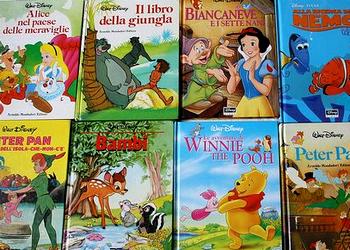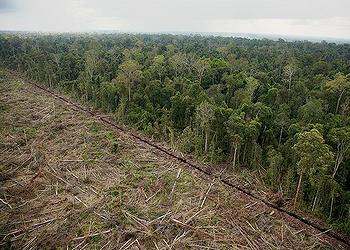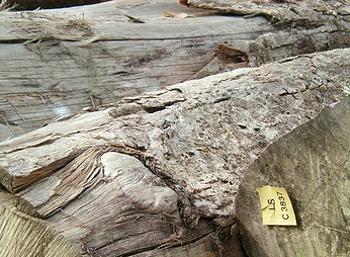
BURBANK, California, October 22, 2012 (ENS) – As part of its new paper sourcing policy, the Walt Disney Company has renounced the use of paper and fiber associated with rainforest destruction and human rights violations anywhere in the world – particularly in Indonesia.
“Due to the urgency of the deforestation issues in Indonesia, Disney is asking all its licensees, vendors and suppliers to avoid using paper or fiber from Indonesia that does not meet the Forest Stewardship Council’s Controlled Wood Standard until needed reforms to stop further clearance of natural rainforests are implemented,” the company said in its policy statement, announced on October 11.

The entertainment giant is the world’s largest publisher of children’s books and magazines. Its new global policy will impact nearly 25,000 factories in over 100 countries, including 10,000 factories in China alone.
“The paper policy is an example of how Disney conducts business in an environmentally and socially responsible way, and demonstrates the Company’s commitment to creating a lasting, positive impact on ecosystems and communities worldwide,” said Dr. Beth Stevens, senior vice president, Disney Corporate Citizenship, Environment and Conservation.
The policy aims to minimize the consumption of paper and eliminate paper products containing irresponsibly harvested fiber, such as fiber from High Conservation Value Areas.
Disney says it will also maximize recycled content and fiber sourced from Forest Stewardship Council-certified forestry operations.
The company worked with environmental groups to establish the new policy.
“We commend Disney for adding its significant voice to the growing chorus of companies demonstrating that there’s no need to sacrifice endangered forests or animals for the paper we use every day,” said Rebecca Tarbotton, executive director of the California-based nonprofit Rainforest Action Network, which worked with Disney on the policy.
“This policy will have a particularly important impact in Indonesia, the primary place where rainforests are still being cut down for pulp and paper,” said Tarbotton.
Indonesia has one of the highest deforestation rates in the world, and just under half of the country’s original forest cover now remains, according to the Rainforest Action Network, RAN.

Although estimates vary, RAN says “conservative studies suggest more than 2.4 million acres of Indonesian rainforest is cleared and lost each year.”
Environmental and social problems are the result. The Javan tiger is extinct and the orangutan is endangered. Burning to clear rainforests emits a thick haze of smoke that shuts down regional air traffic and causes public health alerts hundreds of miles away. Pesticides and factory run-off pollute soil and water.
Destruction of Indonesia’s rainforests is raising the planetary temperature. “Rainforest and peatland ecosystems store billions of tons of carbon, and their demolition releases huge emissions into the atmosphere,” warns RAN. “Indonesia is now the world’s third largest emitter of greenhouse gases after the U.S. and China, with 85 percent of its emissions profile coming from rainforest and peatland degradation and loss.”
Indonesians are losing their forests and their rights to pulp and paper companies. “Growing corporate control of land is responsible for serious human rights abuses and persistent conflicts between companies and local communities,” says RAN.
Problems of unsustainable deforestation are not confined to Indonesia.
“The world’s forests are facing multiple pressures,” said said Ruth Nogueron with the World Resources Institute, a think tank based in Washington, DC. “Disney’s actions to better understand its paper usage and supply chain send a positive signal that the company recognizes the seriousness of this issue.”
“Nature conservation is an important priority for Disney, and we are deeply concerned about the ongoing clearance of rainforests for pulp and paper,” Disney says in its policy statement.

In its March 2011 Corporate Citizenship Report Disney published a goal that 100 percent of paper sourced for products and packaging by its non-licensed businesses be sustainable. The paper sourced will contain recycled content, be sourced from certified forests, or be of known source origin.
As a next step Disney is developing a company-wide paper policy that will expand this goal to include all paper associated with licensed products and packaging bearing Disney characters, marks or brands.
The new policy is part of Disney’s ongoing support for forest and nature conservation.
Over the last 20 years, the Disney Worldwide Conservation Fund has invested in conservation programs in 112 countries, including more than 70 projects in Indonesia to protect the Sumatran rainforest and work with villages to effectively manage critical forest habitats.
Since 2009, Disney has also invested more than $27 million in forest carbon projects in the United States, Peru, Brazil, Democratic Republic of Congo, and China.
The Walt Disney Company’s Environmental Policy addresses water and energy conservation; greenhouse gas emissions reduction; waste minimization; and ecosystem conservation.
The company says its policies are intended to inspire Disney employees, cast members, guests, and business colleagues to take positive action for the environment.
Copyright Environment News Service (ENS) 2012. All rights reserved.
© 2012, Environment News Service. All rights reserved. Content may be quoted only with proper attribution and a direct link to the original article. Full reproduction is prohibited.
